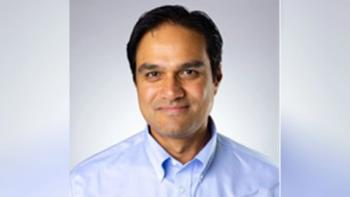
Addressing Challenges to Access, Advancement of Myeloma Therapies
In an interview with Pharm Exec Associate Editor Don Tracy, Joseph Mikhael, MD, chief medical officer, IMF, discusses challenges of access and advancement of myeloma therapies.
PE: Are there any particular therapies that have been historically challenging regarding access?
Mikhael: As I noted, myeloma is in many ways an exciting disease in the sense that when I started as a myeloma doctor over 20 years ago, the average patient lived maybe one or two years with this disease, and sadly, the disease damages people's bones. It affects their immune system, so patients are often in a lot of pain. They can be in kidney failure, and they can have repeated infections. While it still remains a terrible disease, we've had a huge improvement over the last 20 years, where now the majority of our patients are going to live more than a decade. So, it's really been a success story and sometimes I summarize the success with four different treatments that all start with the letter T, and that's an easy way for me to remember them and to describe them.
Things that have really helped patients are what we call triplets or three drug combinations. Myeloma is a complicated disease, so it isn't one drug that overcomes it, it's that right combination. The second advancement was what we call transplants, or autologous stem cell transplantation, where we use people's own stem cells. We harvest them, we give them a big dose of chemotherapy, and then give them their stem cells back. The third has been clinical trials, because we know that trials have investigated new therapies and have given so many patients an opportunity to respond to something that works so well, even before it is formally approved. And then most recently, something called Car-T cell therapy, where we could actually take T cells from a patient, kind of like a soldier cell that we can train, train it against their own myeloma and give it back. When I started, that would have sounded like a Star Trek movie, but this is actually what we do now.
So, we look at these four T's, triplets, transplants, trials and Car-T cell therapy. They've really moved the needle in myeloma. However, the sad reality is that many patients have had less access to that internationally. Here in the United States, in particular, within the African American and Latino American populations, we've seen that disparity, and that's one of the reasons why we've created the M-Power program that I described to ensure that we do everything that we can to reduce that disparity.
When I look at what is happening now, what we're doing with these four therapies and more, I really do think we're moving closer and closer to a cure, and indeed, closer and closer to controlling it in the vast majority of our patients.
PE: What are the significant challenges hindering the advancement of multiple myeloma research?
Mikhael: There are a lot of things that make us humbled in what we do when we study a disease like multiple myeloma. The biology of myeloma is complicated, and so it takes complex approaches to overcome it. In a disease that is not as well-known and is not as common, there tends not to be as large a funding mechanism or awareness of it, and that's one of the reasons why we do programs like our Iceland expedition to raise awareness.
Lastly, I would say that it's so important that we collaborate together. No one place can see enough of a rare condition to fully grasp it, and that, I think to some degree, has been the superpower of the IMF. We created something called the International Myeloma Working Group. This is now almost 300 individuals around the world who are true experts in myeloma, and it brings them together in a unique way to think together, to strategize together, and to collaborate and research. Everyone has their own affinity to their institution, but together, we can do more, and we can do better. Part of the huge improvement of myeloma has been because of this group. As we work towards the future, we want to continue that. We want to work ourselves out of a job. We want to find a way that we can genuinely have patients cured of this disease, and if not cured of it, as I often say, we haven't cured diabetes, we haven't cured high blood pressure, we can try and control it. I do think we can do even better than that in myeloma with time, but it is an uphill battle, although we've had some tremendous successes of late, and I feel the enthusiasm of the myeloma community as we look into the future.
Newsletter
Lead with insight with the Pharmaceutical Executive newsletter, featuring strategic analysis, leadership trends, and market intelligence for biopharma decision-makers.



